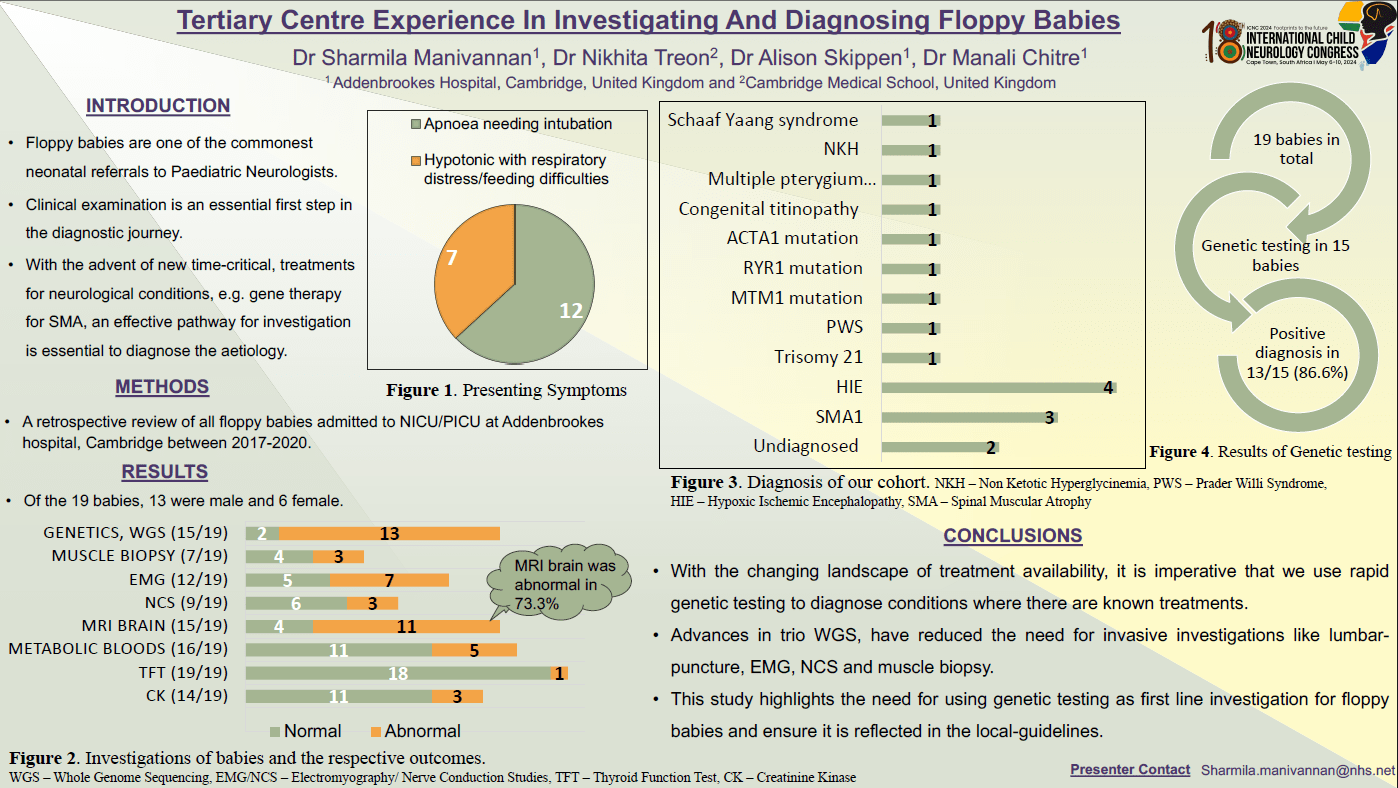Tertiary Centre Experience In Investigating And Diagnosing Floppy Babies
Introduction:
Floppy babies are one of the commonest neonatal referrals to Paediatric Neurologists. Clinical examination is an essential first step in the diagnostic journey. However, with the advent of new time-critical, life-changing treatments for neurological conditions, e.g. gene therapy for SMA, an effective pathway for investigation is essential to diagnose the aetiology of their presentation.
Methods:
A retrospective case-note review of all floppy babies admitted to NICU/PICU between 2017-2020 was conducted. Detailed history, examination-findings and investigations were reviewed.
Results:
Of the 19 babies, 13 were male and 6 female. 8 babies were between 38-42weeks gestation at presentation and rest were <37weeks. 12 babies presented with apnoea/bradycardia needing intubation and rest were floppy with respiratory distress/feeding-difficulties. Investigations were performed as per local-guidelines. Diagnosis was made in 13/19 (68%) babies through genetic testing including whole-genome-sequencing (WGS). Cerebrospinal fluid and metabolic blood tests clenched the diagnosis of non-ketotic hyperglycinaemia in 1 baby. Muscle-biopsy findings corroborated with genetic results in 4 babies. Electromyography (EMG) and Nerve-Conduction-Studies (NCS) were carried out in 12 and 9 babies respectively providing supportive evidence towards diagnosis in 3 and 7 babies respectively.
Conclusions:
With the changing landscape of treatment availability, it is imperative that we use rapid genetic testing to diagnose conditions where there are known treatments. Advances in trio WGS, have reduced the need for invasive investigations like lumbar-puncture, EMG, NCS and muscle biopsy. This study highlights the need for using genetic testing as first line investigation for floppy babies and ensure it is reflected in the local-guidelines.
Sharmila Manivannan
Royal London Hospital
United Kingdom
Nikhita Treon
WEST HERTFORDSHIRE TEACHING HOSPITALS NHS TRUST
United Kingdom
Alison Skippen
John Radcliffe Hospital
United Kingdom
Manali Chitre
Cambridge University Hospitals
United Kingdom

Sharmila Manivannan
Royal London Hospital
United Kingdom